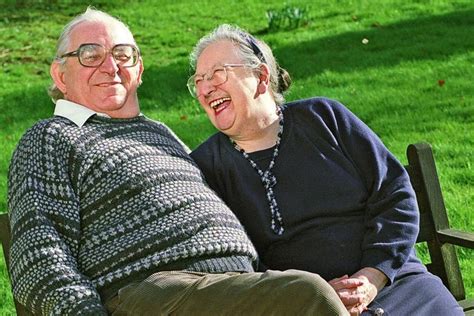A Quote by Anuj
FORGIVING is FOR GIVING to others and if it is meant FOR GETTING to ourselves then should it not be termed as FORGETTING ourselves.
Related Quotes
The more we have given to ourselves, the more we have to give to others. When we find that place within ourselves that is giving, we begin to create an outward flow. Giving to others comes not from a sense of sacrifice, self-righteousness, or spirituality, but for the pure pleasure of it, because it's fun. Giving can only come from a full, loving space.
The remarkable thing is that we really love our neighbor as ourselves: we do unto others as we do unto ourselves. We hate others when we hate ourselves. We are tolerant toward others when we tolerate ourselves. We forgive others when we forgive ourselves. We are prone to sacrifice others when we are ready to sacrifice ourselves.
Forgiving ourselves for all the woulda-shoulda-couldas in life, and sometimes forgiving others for actions that we feel undercut or undermine our good, can be very challenging. But forgiveness of the past and mistakes, our own mistakes as well as the mistakes of others, is imperative if we are to dwell fully in the present and experience the miracles that are only available to the forgiving and loving mind.
Once we have forgiven, however, we get a new freedom to forget. This time forgetting is a sign of health; it is not a trick to avoid spiritual surgery. We can forget because we have been healed. But even if it is easier to forget after we forgive, we should not make forgetting a test of our forgiving. The test of forgiving lies with healing the lingering pain of the past, not with forgetting the past has ever happened.
Why does death engender fear? Because death meant change, a change greater then we have ever known, and because death was indeed a mirror that made us see ourselves as never before. A mirror that we should cover, as people in olden days covered mirrors when someone died, for fear of an evil. For with all our care and pain for those who had gone, it was ourselves too we felt the agony for. Perhaps ourselves above all.
In trying to express only those aspects of ourselves that we believe will guarantee us the acceptance of others, we suppress some of our most valuable and interesting features and sentence ourselves to a life of reenacting the same outworn scripts. Reclaiming the parts of ourselves that we have relegated to the shadow is the most reliable path to actualizing all of our human potential. Once befriended, our shadow becomes a divine map that—when properly read and followed—reconnects us to the life we were meant to live and the people we were meant to be.
We have limited time in our life, therefore we should try to teach ourselves, not to teach others. We should conquer ourselves, rather than conquer others. Whether coming or going, standing, sitting or lying down, our mind should be focused in this way. If we practise like this and develop mindfulness continuously, wisdom arises quickly and this is a fast way of practice.


































